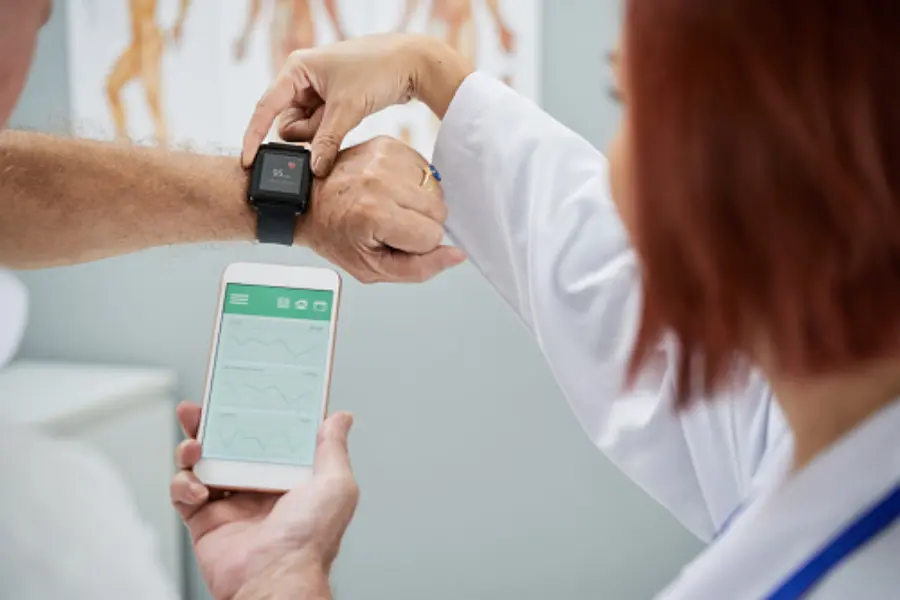Clinical trials are essential for the development of new treatments and therapies. The data gleaned from these trials are used to determine whether a drug or treatment is safe and effective for humans. In recent years, wearable devices have begun to play a role in clinical trials. Let’s take a look at the impact of wearable devices on clinical trials, and some of the benefits and challenges associated with their use.
Wearable devices in clinical trials: Guidelines
The US Food and Drug Administration (FDA) has issued guidelines for the use of wearable devices in clinical trials. These guidelines provide a framework for how wearable devices can be used to improve the accuracy and reliability of data gathered during a trial. Clinical trials that make use of wearable devices must adhere to FDA standards, including having informed consent before the start of the study. Additionally, researchers must take steps to protect patient privacy by encrypting any data collected through wearables.
Benefits of Wearable Devices in Clinical Trials
- Wearables allow clinical trials to collect more data than ever before. They enable researchers to track and measure a wide range of parameters such as physical activity, heart rate, and sleep patterns over long periods of time. This can provide invaluable insights into how treatments affect patients on a daily basis.
- Wearables are also cost-effective compared to traditional methods of data collection. By eliminating the need for costly visits to clinical sites, wearables can help reduce trial costs and make trials more efficient.
- Wearables are easier for patients to use than other types of monitoring equipment. They are lightweight, discreet, and can be worn all day without discomfort or interference with daily activities. This makes it easier for patients to stick to the clinical trial protocol and helps researchers collect more accurate data.
- The use of wearable devices in clinical trials can provide a wealth of data that would otherwise be difficult to collect. For example, through wearables like fitness trackers, researchers can monitor the physical activity levels and heart rates of trial participants. This information can prove invaluable when it comes to determining the efficacy of certain drugs or treatments.
- Additionally, wearable devices can reduce the burden on patients by allowing them to self-monitor their health in real-time which eliminates the need for lengthy visits to the doctor’s office.
Challenges & Considerations for Wearables in Clinical Trials:
The use of wearables in clinical trials is an exciting development that has the potential to revolutionize the way data is collected and analyzed. However, there are still a number of challenges and considerations that need to be taken into account before they can be used effectively. Clinical trial sponsors should carefully evaluate the benefits and risks associated with wearable technology before implementing it in their studies.
- Clinical trials using wearables must adhere to the same rigorous standards as any other trial. This means that researchers must carefully consider all data collected and ensure it is of a high enough quality to be used in the analysis.
- Wearable devices may be more suitable for some clinical trials than others. For example, if a trial involves monitoring physical activity levels or sleep patterns, then a device such as a fitness tracker may be more appropriate than traditional methods of data collection. However, if a trial requires continuous monitoring of vital signs, then traditional equipment might be better suited due to its greater accuracy.
- Privacy concerns must also be taken into consideration when using wearable devices in clinical trials. It is important that researchers take steps to ensure that patient data is secure and not shared with unauthorized parties.
- The accuracy of data collected by wearables can be an issue. These devices are not as reliable as traditional methods, and they may miss important events or measure things inaccurately.
- Clinical trials often require data to be collected over long periods of time, and wearables can have limited battery life. This may limit the amount of data that can be collected and analyzed during a trial.
- Wearables have yet to be approved by regulatory agencies for use in clinical trials, so they should only be used in trials that are conducted under the supervision of an experienced medical professional.
Clinical trials that make use of wearable devices must adhere to FDA standards, including having informed consent before the start of the study, as well as taking steps to protect patient privacy. With proper implementation, wearables can provide invaluable information that could lead to better treatments for patients worldwide.
Final Words
Overall, the use of wearable devices in clinical trials has the potential to revolutionize the way data is collected and analyzed. By providing more comprehensive insights into how drugs and treatments affect patients on a day-to-day basis, wearables can help researchers determine whether a drug or treatment is safe and effective for humans.







